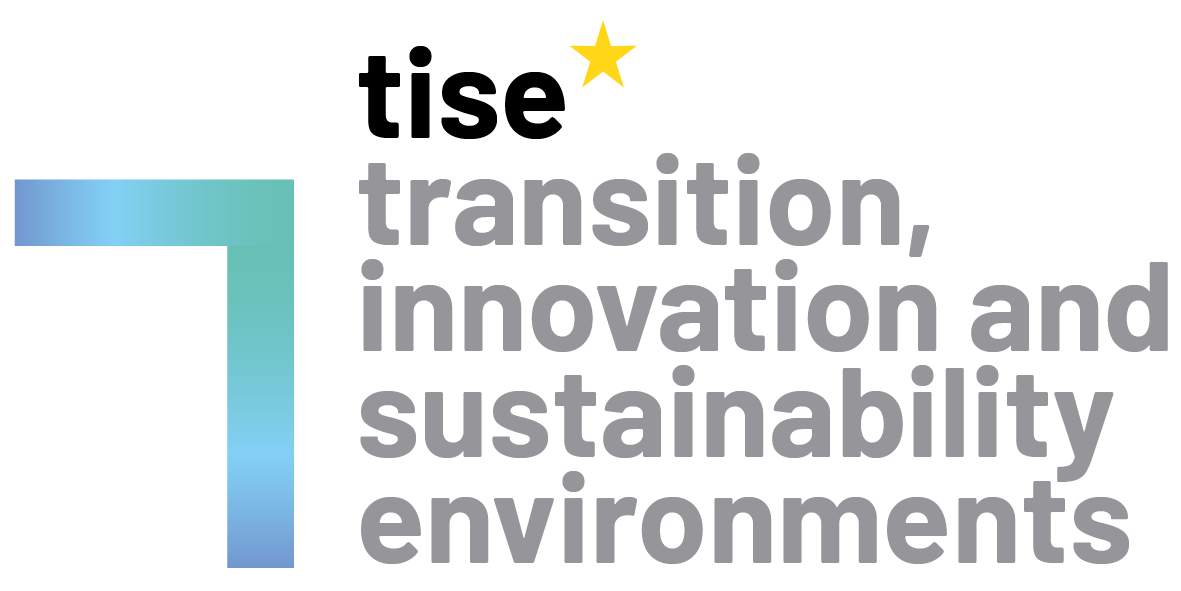
Transdisciplinary Field Research Training
The Objectives of the Transdisciplinary Field Research Training (TFRT)
The focus of the Erasmus Mundus European Master of Excellence Transition, Innovation and Sustainability Environments, TISE is on sustainable and resilient societal, business and industry processes and structures. Through its strong transdisciplinary approach (i.e. a method guided by mutual learning processes between science and practice), students on this program gain a comprehensive understanding of relevant coupled human-nature-technology systems (respectively ‘human environment systems’), positive and negative mechanisms and effects of transitional processes (including underlying obvious and hidden rebound effects), and interventions together with the innovation potential therein. To facilitate the transdisciplinary approach hybrid learning spaces are being developed. They allow for examining how digital, physical and hybrid spaces can improve the modeling of complex relations to enhance the quality of decision-making. In the transdisciplinary collaborative project-work, the learning spaces are used for workshops by the mixed teams (science-society), where practical and relevant challenges are identified and systemically analyzed (combined stakeholder and system analyses), statistical data and network analyses are carried out and the results are consolidated and interpreted. Consequently, a comprehensive knowledge integration is the ultimate goal.
Transdisciplinarity as part of the TISE Master
What means transdisciplinarity
Mode 2 Transdisciplinarity has become a third mode of doing and utilizing science, showing its transition from pure disciplinarity or interdisciplinarity. This means that transdisciplinarity with its underlying methods does not only cross the boundaries of traditional disciplines. At its core it aims toward “doing science for society” – a goal that can only be achieved by an extended mutual learning between science and society, which is based on a targeted multi- or interdisciplinary research, moderated by a multi-stakeholder discourse and facilitated by science and practice relation. Thus, the key outcome of a transdisciplinary process is the development of a socially robust orientations about a specific real-world problem that are usually ill-defined, complex, but socially highly relevant. A fundamental principle of transdisciplinarity is that representatives from science and practice collaborate on an equal footing throughout the course of the entire process (incl. joint definition of the problem, representing the problem, and developing strategies for transforming the problem). The ideal form of transdisciplinarity contains the co-leadership of a science and a practice leader. Accepting the otherness of the other is seen as a prerequisite for transdisciplinary mutual learning.
What should be achieved by Td-processes
Transdisciplinarity processes may serve for capacity building among all participants; consensus building about the main problems (including their genesis and transformation), (analytic) mitigation of emerging conflicts in a process of sustainable transformation, and political legitimation. Specifically, a main role of science is to develop knowledge and theories that allow for more clearly describing the processes in social, technical, and biophysical systems and their interactions. In other words, scientists provide theories and method-based evidence. In their turn, practitioners deliver “contextualized” practical experience related to a specific problem. Within the whole transdisciplinary process practitioners may follow their interests. However, it is expected that all participants can make some level of commitment to sustainability. It is important to understand that transdisciplinary processes dealt with a special type of problems which can be solved by other approaches (such as consultancy) which are “less expensive.” The TISE Transdisciplinary Field Research Training study will deal with transdisciplinary problems.
The outcomes of a transdisciplinary process are Socially Robust Orientations (SoRO). A SoRO provides orientation on what are favorable and/or obstructive actions for keeping the viability of a case or system. A transdisciplinary problem does not provide plug and play solutions, but rather proposals that are widely shared by far most of the stakeholder groups. The social robustness is generated by various ways of integrating knowledge (e.g., from practitioners and scientists, by different conflicting stakeholders, from different subsystems).

